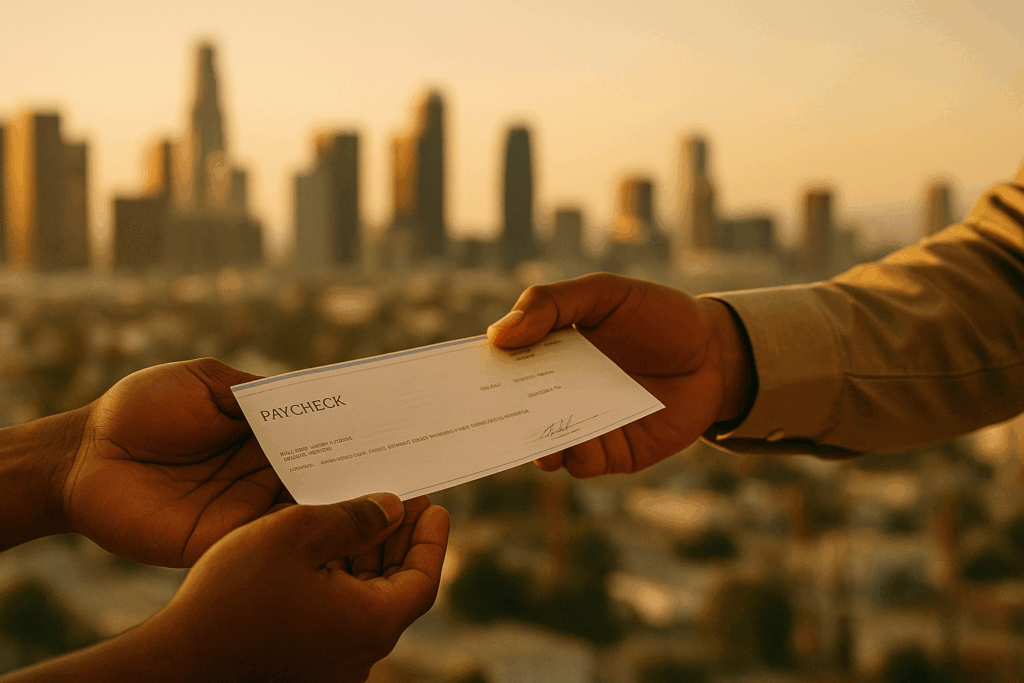In a significant legal victory for California workers, the U.S. Supreme Court recently denied appeals by Uber and Lyft, allowing state lawsuits to proceed over unpaid back pay for drivers. The refusal to hear the case is seen as a major win for those advocating for worker rights, especially in the gig economy. California’s ongoing legal battle against these companies centers on the misclassification of drivers as independent contractors rather than employees—a distinction that denies them key protections like overtime, minimum wage, and expense reimbursements.
The Case Against Uber and Lyft
The legal conflict began in 2020 when California Attorney General Rob Bonta and Labor Commissioner Lilia Garcia-Brower filed lawsuits against Uber and Lyft. The lawsuits argued that these companies were improperly classifying their drivers as independent contractors. Under California law, employees are entitled to essential benefits such as paid sick leave, minimum wage protections, and overtime pay—protections that independent contractors do not receive.
The core of the state’s argument was that Uber and Lyft’s classification of drivers as independent contractors violated California’s labor laws, leaving workers without basic protections. The lawsuits seek to recover wages and penalties for tens of thousands of drivers who were affected by this misclassification.
Arbitration Agreements in Question
Uber and Lyft pushed back, arguing that the drivers had agreed to arbitration as a means of settling disputes, a process that would keep these lawsuits out of the courts. The companies claimed that the Federal Arbitration Act (FAA) should prevent state lawsuits on behalf of workers who had signed agreements to resolve disputes through private arbitration rather than in court. The companies’ legal teams argued that allowing these lawsuits to proceed would undermine the validity of arbitration agreements, which are widely used not only by ride-hailing services but by a vast number of U.S. companies.
Despite these claims, a California state appeals court ruled in 2023 that the arbitration agreements do not apply to California labor officials, who are not bound by the terms that individual drivers had agreed to. The ruling stated that the labor commissioner and state officials have the independent authority to enforce state labor laws, regardless of the arbitration agreements.
After the California Supreme Court refused to hear further appeals, Uber and Lyft took their case to the U.S. Supreme Court, hoping for a ruling in their favor. However, the nation’s highest court declined to intervene, effectively allowing the lawsuits to continue.
Why This Is a Victory for California Workers
The Supreme Court’s refusal to hear the case is a monumental win for gig workers, particularly in California, where labor protections have long been a hot-button issue. The case reflects a broader conflict between state labor laws and the push by companies to classify gig workers as independent contractors, a status that saves businesses significant costs.
By denying the appeals, the Supreme Court has upheld the state’s right to enforce labor protections for workers, even when those workers have signed arbitration agreements. This ruling underscores the state’s power to hold companies accountable for violations of labor laws that affect broad groups of employees rather than being limited by individual arbitration agreements that may not reflect the collective interests of all workers.
For the thousands of drivers impacted by the lawsuits, this decision opens the door to potentially significant back pay, penalties, and other forms of compensation for wages lost due to misclassification. It also strengthens the broader legal movement to ensure that gig economy workers are treated fairly and receive the benefits and protections that employees traditionally enjoy.
The Broader Implications
The ruling also highlights the ongoing tension between state labor laws and corporate practices that rely on independent contractor classifications. While companies like Uber and Lyft have long argued that their drivers prefer the flexibility of independent contractor status, state officials contend that this classification has been misused to deny drivers rightful compensation.
In fact, California has been a leader in pushing back against these practices, with several legal and legislative efforts aimed at securing greater protections for gig workers. This ruling is part of that broader effort. It sends a strong message to companies in the gig economy: worker misclassification will not be tolerated, and state labor laws cannot be bypassed through arbitration agreements.
Furthermore, while the ruling applies specifically to California, its implications could resonate nationwide. Other states that have sought to strengthen protections for gig economy workers may follow California’s lead in enforcing labor laws, regardless of arbitration agreements.
What This Means Moving Forward
For Uber and Lyft drivers in California, the ruling represents a step toward fair treatment and compensation for the work they have performed. While the companies are likely to continue defending their business models in other ways, the state’s ability to hold them accountable for past practices remains intact.
This case also serves as a reminder to workers in all sectors: arbitration agreements, while common, do not necessarily strip away all rights to pursue legal action, especially when broader labor laws are at play. Workers who believe they have been wronged by their employer, whether through misclassification or wage theft, should not assume that an arbitration agreement closes the door on their legal options.
Stand Up for Your Right to Correct Employment Classification
The U.S. Supreme Court’s decision to deny Uber and Lyft’s appeals is a pivotal moment for workers in California and across the nation. It affirms the state’s ability to pursue back pay and penalties for drivers who were misclassified, regardless of arbitration agreements. This ruling is a victory for labor rights and signals that companies cannot sidestep state labor protections through legal loopholes. For drivers and workers in the gig economy, this decision brings hope for fair treatment and rightful compensation.At the Law Offices of Todd M. Friedman, P.C., we remain committed to helping employees fight for their rights. If you believe you have been wrongfully classified as an independent contractor or denied the wages and benefits you deserve, contact us to discuss your legal options. Our team is experienced in California labor laws and ready to help you navigate the complexities of employment law to seek the compensation you deserve.

















